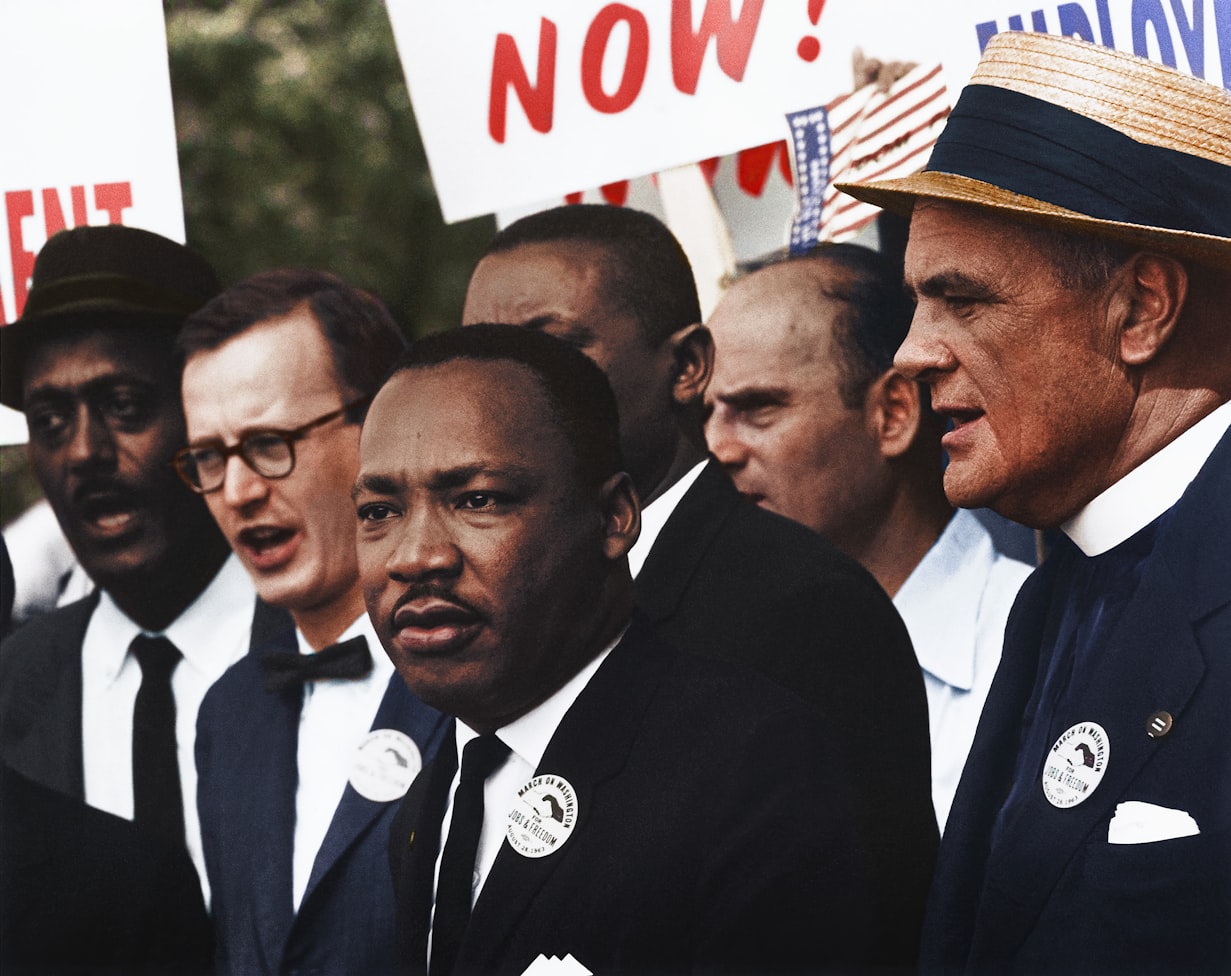
While sitting in a Birmingham, Alabama jail cell in 1963, the Rev. Dr. Martin Luther King, Jr. was given a copy of the local newspaper. Included in that issue was a letter submitted by eight white clergy that became known at the time as “a call for unity.” This appeal for calm was a veiled attempt to silence the enthusiasm created by the non-violent protests led by Dr. King and his associates. And, given its authorship, attempted to leverage the very authority of God.
Dr. King, of course, was compelled to respond. In the margins of that newspaper, on other scraps of paper, and on a note pad left behind by a lawyer, Dr. King drafted “A Letter from a Birmingham Jail” which is one of the most well-known of his writings and is considered to be one of the most influential texts of the American civil rights movement.1
Arguing that the white clergy’s suggestion that the protests were still illegal, Dr. King asserted,
“The answer lies in the fact that there are two types of laws: just and unjust. I would be the first to advocate obeying just laws. One has not only a legal but a moral responsibility to obey just laws. Conversely, one has a moral responsibility to disobey unjust laws. I would agree with St. Augustine that “an unjust law is no law at all.”
With his position labeled as “extremist” by the white clergy, Dr. King agreed that, in relation to this cause and as a follower of Jesus, extremism was called for. He wrote,
“So the question is not whether we will be extremists, but what kind of extremists we will be. Will we be extremists for hate or for love?”
Today is the third Monday of January, the official observance of the birthday of Martin Luther King, Jr.. This national holiday was established in 1983 by President Ronald Reagan and since 2000 has been observed in all 50 states. Dr. King’s legacy will be honored as this nation, and indeed the world, take to heart his teachings and his witness.
It should not be lost on us today that we are likely to continue to hear calls for “unity” by those who would like to diminish and silence the voices calling the nation to account for its sins. We’re also likely to hear the title of “extremist” hurled in all directions. God’s vision, the God who worked in and through Martin Luther King Jr., is steadfast in its expectation the world be united in extreme love. May this be the vision we seek out today and everyday.

“Darkness cannot drive out darkness; only light can do that. Hate cannot drive out hate; only love can do that.”2
May God’s peace find you this day. -Pastor Peter
Prayer in Memory of Martin Luther King Jr.
God, you do not care about
our origins, skin color or gender.
Where your spirit blows,
people of different backgrounds
live together in peace.
Where you are, God,
fear recedes.
Prejudice and pride
lose their power.
God, we want to be with you,
we want to live with you.
Amen.
1 Read the full text of “Letter from a Birmingham Jail.”
2 Martin Luther King Jr. (1967). Where Do We Go from Here: Chaos or Community?.
